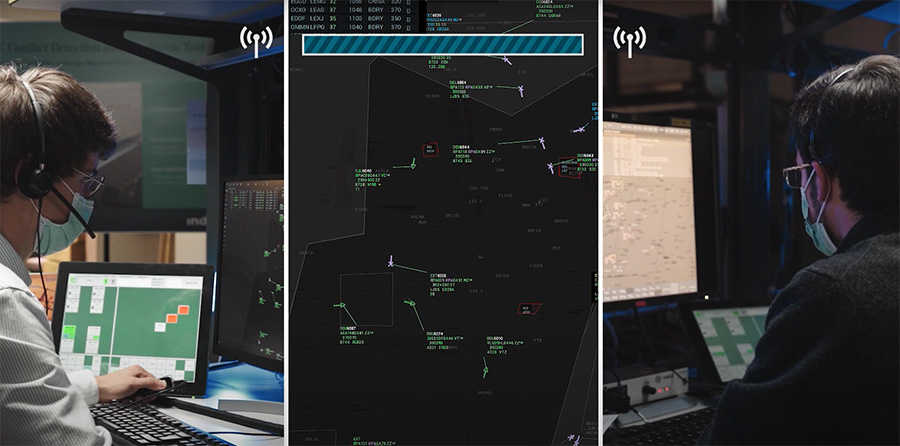In March, SESAR 3 JU founding member, Indra, organised a virtual open day to present the results of research into enabling the safe integration of remote piloted aircraft systems (RPAS) in controlled airspace (PJ.13, Solution #117). The research is part of the activities of the SESAR/Horizon 2020 project, ERICA.
“Remotely-piloted aircraft” (RPA) is a specific set of unmanned aircraft, which is remotely operated by a pilot in a control station, hence the term “Remotely-piloted aircraft System” (RPAS). RPAS are especially useful for repetitive tasks or situations where a human pilot might be put at risk. Situations could include floods, where a continuous monitoring of the situation is needed; or an accident at a chemical plant, where pollutants have been released into the atmosphere, making it too dangerous to fly overhead.
RPAS can also be useful in the everyday life of citizens for the transport of both small packages and bulk cargo, and for monitoring linear infrastructures, such as pipelines, power lines and railways tracks, among other applications. They are also very useful for emergencies, such as search and rescue or the delivery of medication or defibrillators.
Organised in collaboration with Leonardo and ENAV and bringing together more than 80 participants, the open day presented the outcomes of recent validation exercises on the solutions. The exercise focused on the adaptation of the ground-based safety nets to manage conflicts involving RPAS operations in En-route non-segregated airspace. This exercise considered the RPA operations uncertainty and latency in Satellite-based voice communications with controllers. Short-term conflict alert (STCA) and area proximity warning (APW) ground-based safety nets adaptations were tested by running different scenarios with different thresholds: reference, moderate and high.

This project has received funding from the SESAR Joint Undertaking under the European Union's Horizon 2020 research and innovation programme under grant agreement No 874474
